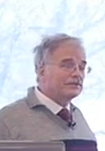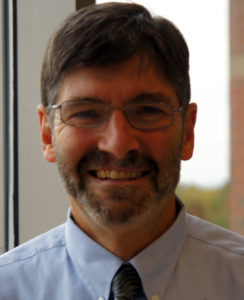Based on Henry George’s Social Problems and additional resources, this course is open to all interested adults. You’re welcome to sit in on the first session free, after which a $25 registration fee applies. Course meets Tuesdays, April 5 thru June 7. Course description is here. It is helpful if you pre-register.
“The purpose of Newspeak was not only to provide a medium of expression for the world-view and mental habits proper to the devotees of IngSoc, but to make all other modes of thought impossible. It was intended that when Newspeak had been adopted once and for all and Oldspeak forgotten, a heretical thought – that is, a thought diverging from the principles of IngSoc – should be literally unthinkable, at least so far as thought is dependent on words.“
— George Orwell

Something like this has happened to the field of economics, says Dan Sullivan. Terms which had clear meanings to Adam Smith, J S Mill, and other classical economists have got distorted and redefined– or obliterated– to prevent serious discussion of economic issues. Going back to the roots of political economy, Dan suggests the real point of a proper science of economics would be to efficiently satisfy the desires of the people, both individually and collectively.
Dan will help us distinguish between “rights” and “privileges,” “investments” and “acquisitions”, and several distinct concepts that all get called “wealth.” He’ll address the difference between “means of production” and “capital,” and differentiate “human capital” from modern slavery.
You can understand today’s economic issues such as minimum wages, tax policy, international trade, housing costs, and unemployment, but only if you have a clear idea of the fundamental terms. These terms can be readily comprehended by ordinary people and do not lead to any particular “left” or “right” public policy, but they facilitate informed communication.
There will of course be time for questions and discussion.
Based in Pittsburgh, Dan Sullivan is a popular speaker on economic issues, and Director of Saving Communities

This presentation has been cancelled. We will let you know when it’s been rescheduled. There will be no presentation February 21, 2019.
The Battle of Lincoln Park tells the story of how people with clashing visions and values fought to determine the path gentrification would take before anyone was using that word. Calling on the power of private funds, public policy, moral appeals, and both nonviolent and violent protest, residents of Old Town and Lincoln Park struggled over the meaning of “desirable” homes, “neighborhood character”, and what kind of city Chicago should be. The outcomes set the tone for profound changes to the city that are still unfolding today.
Acclaimed author Daniel Kay Hertz has written extensively on subjects relating to gentrification, housing, urban demographics, and transportation. This is his first book.
Registration is required for this free event. Building security will print a badge for you to go upstairs. If you plan to come, or are just considering the possibility, please let us know by email events@hgchicago.org or by phoning us at 312 362-9302.

This presentation has been rescheduled and will now take place Thursday, March 7, 2019, at 6:15 pm.
The Battle of Lincoln Park tells the story of how people with clashing visions and values fought to determine the path gentrification would take before anyone was using that word. Calling on the power of private funds, public policy, moral appeals, and both nonviolent and violent protest, residents of Old Town and Lincoln Park struggled over the meaning of “desirable” homes, “neighborhood character”, and what kind of city Chicago should be. The outcomes set the tone for profound changes to the city that are still unfolding today.
Acclaimed author Daniel Kay Hertz has written extensively on subjects relating to gentrification, housing, urban demographics, and transportation. This is his first book.
Registration is required for this free event. Building security will print a badge for you to go upstairs. If you plan to come, or are just considering the possibility, please let us know by email events@hgchicago.org or by phoning us at 312 362-9302.

Ron Baiman will speak on taxing the rentier sectors to achieve the necessary reallocation of economic resources and investment. Mr. Baiman is an economics professor at Benedictine University,
Registration is required for this free event.

Decades before Wealth of Nations, Adam Smith wrote what he seems to have considered a superior work, Theory of Moral Sentiments. He wrote:
How selfish soever man may be supposed, there are evidently some principles in his nature, which interest him in the fortune of others, and render their happiness necessary to him, though he derives nothing from it except the pleasure of seeing it.
Wikipedia asserts:
Smith critically examines the moral thinking of his time, and suggests that conscience arises from dynamic and interactive social relationships through which people seek “mutual sympathy of sentiments.”[74] His goal in writing the work was to explain the source of mankind’s ability to form moral judgement, given that people begin life with no moral sentiments at all. Smith proposes a theory of sympathy, in which the act of observing others and seeing the judgements they form of both others and oneself makes people aware of themselves and how others perceive their behaviour.
The Theory of Moral Sentiments has been printed in numerous editions, and is also available free on line. Smith revised the book throughout his lifetime; it’s best to avoid the first edition, and choose one published after his death in 1790.
In this session we’ll discuss parts 1-3 of the book, taking up parts 4-7 on November 20,

